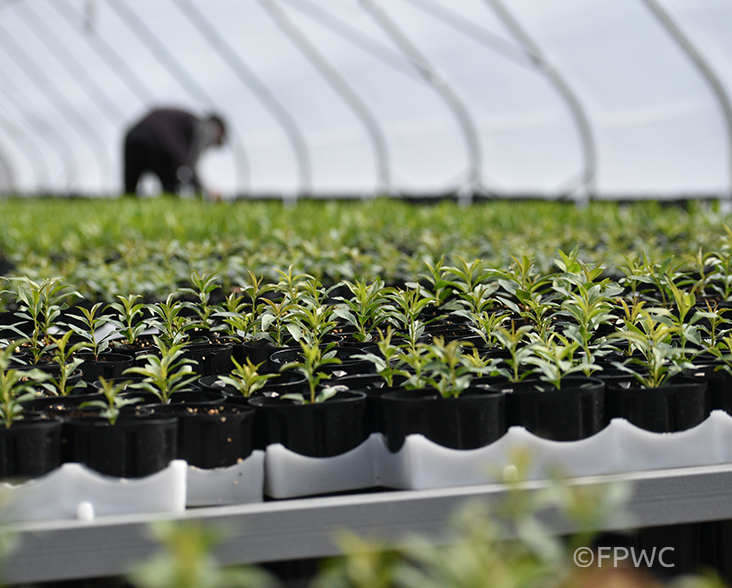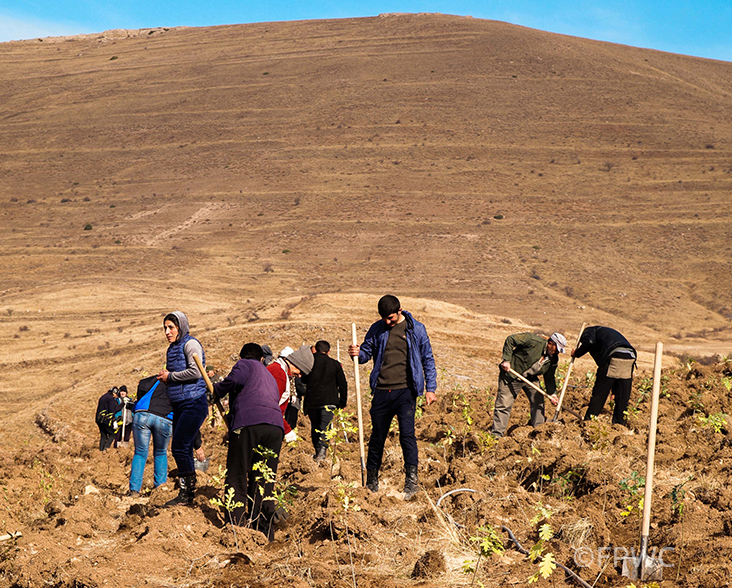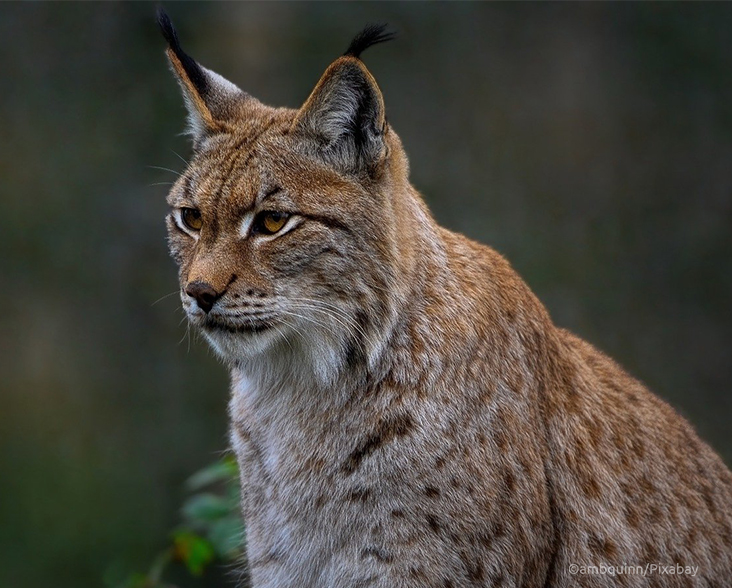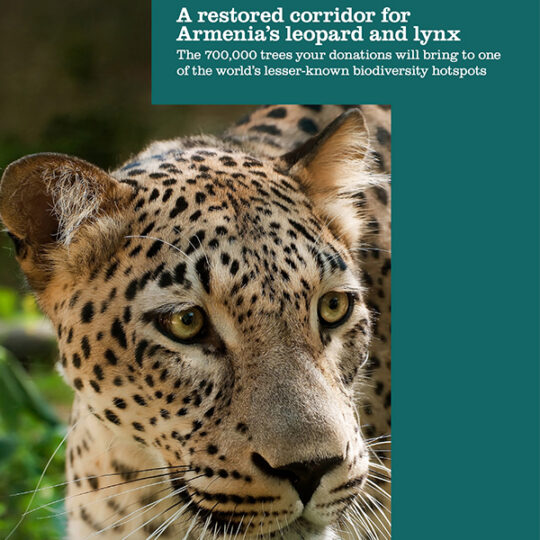Opportunities for local peopleProvide environmental jobs in a region affected by emigration
Community benefits have long been built into the conservation of the Caucasus Wildlife Refuge. A key part of this project is to provide sustainable jobs in a region affected by the out migration of people looking for work. Specifically, you will be supporting the employment of both seasonal workers and all year-round positions in the tree nursery. For the tree planting, FPWC also works with local people who know the landscape well, and carefully collect and process seeds of local native tree species.
Help reduce conflicts between humans and other animals in local villages
FPWC’s approach to planting native fruit trees aims to reduce conflicts between humans and other animals in nearby villages. Over recent decades, bears have suffered from a lack of nutrition which has led to attacks on beehives, orchards and, in some cases, chickens. This has particularly affected people already suffering from poverty. By supporting this project, you will help mitigate these issues by offering species vital food sources provided by the trees.
Improve water security in an area affected by drought
The mountains and slopes of the Caucasus Wildlife Refuge are a major watershed for downstream communities. However, they are increasingly affected by periods of drought. Trees have an important role in the reversal and prevention of the drying out of water sources. Planting trees in this area will benefit both people and the diversity of species living in this landscape.




